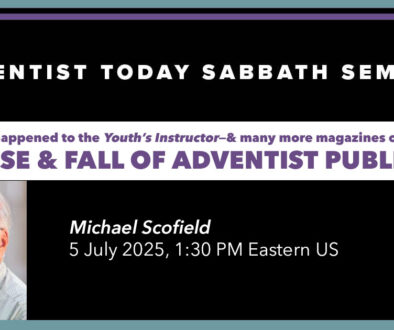Sharing Scripture for November 17 – 23
[symple_heading style=”” title=”God and the Covenant” type=”h1″ font_size=”40″ text_align=”center” margin_top=”0″ margin_bottom=”30″ color=”undefined” icon_left=”” icon_right=””]
This is a tool for you to use if you lead a Sabbath School (SS) class or small group. It is keyed to the Bible texts used in the current week’s Adult SS Lesson and includes a brief story from current news you can use to introduce the discussion and then a series of discussion questions in a relational pattern designed to build fellowship and spiritual reflection.
For use: Nov. 17 – 23
Texts: Nehemiah 10:1-29; Genesis 4:8-19; Hebrews 13:20; Joshua 24; Nehemiah 10:30-39; Hebrews 8:1-7
A man in California is currently suing his ex-girlfriend for $225,000 for breaking up with him. Even though the woman offered to return several thousands of dollars’ worth of gifts to the plaintiff, he wants damages for breach of contract, promissory fraud, intentional infliction of emotional distress, and unjust enrichment. He alleges (among other offenses) that she asked him to buy her a $5,000 Chanel handbag. He says he agreed, but only if she promised to give the relationship an honest effort for at least one year. Then they would either become engaged or mutually agree to split up. She broke up with him a few months later.
Litigation Daily editor Jenna Greene views this lawsuit as “a shoo-in for worst lawsuit of the year.” She adds, “Last time I checked, this is not why we have courts of law—to use as leverage by jilted ex-boyfriends whose ex-girlfriends won’t take their calls.” The woman’s attorney, Joshua Davis adds, “This is an all too familiar story—whether it’s in the boardroom, Hollywood, the soccer field or anywhere—of men using power and money to bully and intimidate women. Here, it’s the legal system and it’s being used to crush this woman. This is not what we went to law school for.” [1]
Whatever the outcome of this case, we can be assured that God will honor the contract established in Eden and restated several times throughout the history of Israel. This week’s lesson explores the reconfirmation of the covenant, signed and sealed by Israel’s leaders. Since God never broke the covenant with Israel, it was up to them to re-examine the conditions and commit to living by them. God shows amazing grace and mercy toward them by continually agreeing to renew the contract.
The simple outline of the covenant is based on our relationship with God: “I am your God, and you are My people.” The benefits of this contract are heavily weighted on our side of the relationship. We receive all of the blessings, even though there is nothing materially equal to those benefits that we can give to God in return. The only thing we can contribute to our side of the contract is to accept God’s offer of love and to live out our personal commitment to the relationship. Anything we do to try to earn God’s love is legalism.
That does not mean that our behavior is meaningless. On the contrary, we show our truly loving response to God’s love for us in how we live. Israel’s pledge to God when they rebuilt their nation included several issues that were pertinent to their present situation: No mixed marriages with idolaters; a return to true Sabbath observance; a recommitment to the sabbatical year and debt cancellation; and a renewal of the temple services. Covenant living involves a continual examination of God’s principles for living in the light of current events and social issues.
[symple_divider style=”solid” margin_top=”20″ margin_bottom=”10″]
Connecting: Conduct an Internet search of traditional wedding vows. As you share what you find, review the relevance of those vows in the 21st century. Are there some principles that are timeless? Are there any aspects of the vows which are outdated? What would you add for relevance to relationships today?
Sharing: The four pledges that Israel promised to God in Nehemiah 10:30-39 can appear to be legalistic attempts to either earn God’s love or avoid God’s wrath. How do you view these promises?
- We keep God’s law as a way to say thanks for loving us
- All of these actions are appropriate in loving relationships—they either involve our love for God or our love for others
- Society would be much better off if everybody obeyed all laws to the letter
- It depends on their motivation; it’s only a problem if they obey out of fear of punishment
- It’s always appropriate to set high goals and standards in our lives, as long as we recognize that we need God’s Holy Spirit (and not our own strength) to achieve them
- Other:
Applying: The very existence of your congregation should imply a promise to provide a benefit to your community. What should your community neighbors realistically expect from you? Compose a simple mission statement that reflects how your congregation plans to add value to its surrounding community.
Valuing: Personally review your relationships and commitments. Have you broken a promise to someone else? Pray for an opportunity to make amends and restore that relationship.
~Chuck Burkeen




